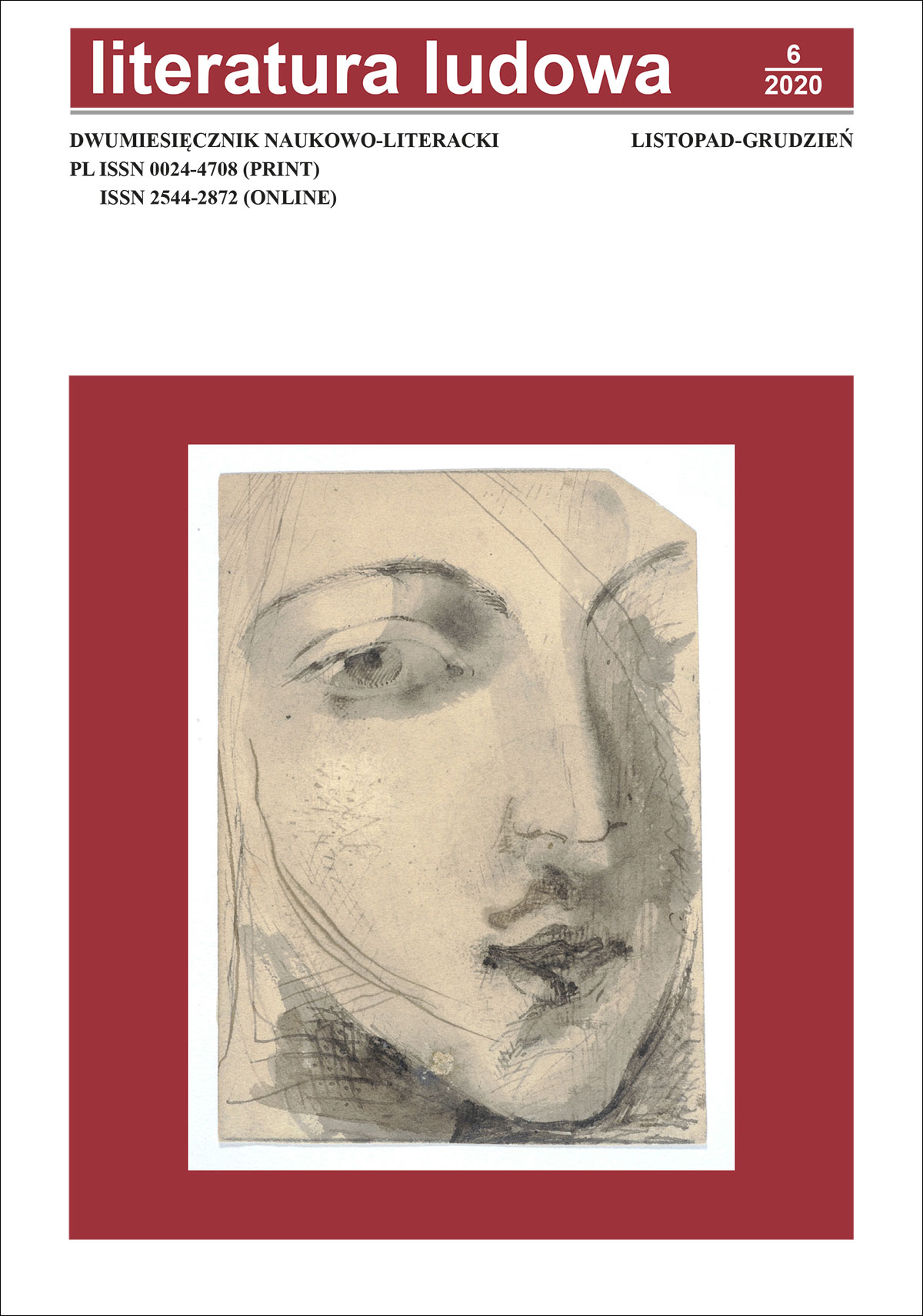Dusze na pokucie. O ludowym pochodzeniu martwicy z "To lubię" i jej pokrewieństwie z marą pcimską
The Souls in Penance: On the Folk Origin of the Spirit from "I Like It" and Its Relationship with the Spirit from Pcim
Author(s): Paulina Karpeta, Olga RadziszewskaSubject(s): Language and Literature Studies, Customs / Folklore
Published by: Polskie Towarzystwo Ludoznawcze
Keywords: folk tale; belief stories; morphology of the folk tale; systematics of folk tale; Adam Mickiewicz; ballad; souls in penance; Pcim
Summary/Abstract: It has not yet been established whether the folk song Adam Mickiewicz refers to in thefootnote to the ballad „I Like It” actually existed. On the other hand, the list of related folk tales is quite long. The similarity between individual oral pieces and the ballad has already been demonstrated by pointing out common themes, especially the penance for insensitivity and rejection of love. However, none of the folk tale turns out to be similar enough to “I Like It” to dispel doubts of those researchers who think that Mickiewicz took the idea from literary tradition and faked the footnote. Other similarity criteria should be applied to enable establishing references to the very popular and extensive folk tale group – souls in penance. All tales from this group share the same morphological pattern in which the type of sin is subject to the greatest variability. The group should be joined by a folk tale recorded in Pcim in 2019. In this version, penance is about sneezing until someone replies with a God bless you. “I Like It” and the tale from Pcim share a morphological background – the samesequence of threads arranged in the same order and the use of retrospection. However, the direction of this relation is not clear. Mickiewicz’s idea for “I Like It” could have been taken from folklore, or the ballad found its way to the countryside and inspired folk culture.
Journal: Literatura Ludowa
- Issue Year: 64/2020
- Issue No: 6
- Page Range: 27-38
- Page Count: 12
- Language: Polish

